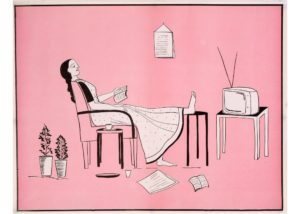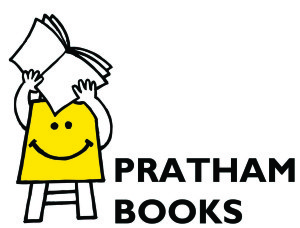Volga “The Liberation of Sita”
‘Till you take decisions for Rama’s sake and not yours, it will continue to pursue you, Sita. Look at yourself. You are enduring great pain. You think you are enduring for the sake of someone else. You think that you have performed your duty for the sake of someone else. Your courage, your self-confidence …you have surrendered everything to others. What have you saved for yourself?’
‘What is “I”, sister? Who am I?’
Ahalya smiled.
‘The greatest of sages and philosophers have spent their lifetimes in search of an answer to this question. You means you, nothing else. You are not just the wife of Rama. There is something more in you, something that is your own. No one counsels women to find out what that something more is. If men’s pride is in wealth, or valour, or education, or caste-sect, for women it lies in fidelity, motherhood. No one advises women to transcend that pride. Most often, women don’t realize that they are part of the wider world. They limit themselves to an individual, to a household, to a family’s honour. Conquering the ego becomes the goal of spirituality for men. For women, to nourish that ego and to burn themselves to ashes in it becomes the goal. Sita, try to understand who you are, what the goal of your life is. It is not easy at all. But don’t give up. You will discover truth in the end. You have that ability. You haev saved Sri Ramachandra, can’t you save yourself? Don’t grieve over what has already happened. It is all for your own good, and is part of the process of self-realization. Be happy. Observe their lives. You belong to this whole world, not just to Rama.’
( Ahalya in conversation with Sita. p 40-41)
Volga’s Vimukta or The Liberation of Sita is a slim collection of five stories. It has been translated from Telugu by T. Vijay Kumar and C. Vijaysree. ‘Volga’ is the nom de plume for Popuri Lalitha Kumari. These are five interlinked yet independent stories inspired by Valmiki’s Ramayana. In each of them Sita meets the minor characters of Valmiki’s epic — Surpanakha, Renuka, Urmila and Ahalya. With each interaction Sita learns a little more about herself and more importantly about what it means to be a woman, have her own identity rather than it being defined by the presence of a man in her life. As the translators say in their note: “The title story signals Sita’s emergence as the liberated one while the final story, ‘The Shackled’, shows Rama imprisoned in the bondage of Arya Dharma.” According to them Volga’s stories belong to a literary tradition of feminist revisionist myth-making but she takes it further and makes it her own.
Volga does not use re-visioning merely as a strategy to subvert patriarchal structures embedded in mythical texts but also as a means to forge a vision of life in which liberation is total, autonomous and complete. She also creates a community of women by re-presenting myths from alternative points of view, and by networking women across ages and generations. She achieves this through different narrative strategies: giving voice to women characters marginalized in the ‘master narrative’, extending the story of a character beyond its conventional closure; forging female bonds and creating a female collective; and redefining many conventional epistemes including liberation.
In fact reinvention of myths has figured prominently in Indian women’s writing. For instance, Mahashweta Devi’s ‘Dopdi’ and ‘Stanadayani’ ( Bangla), Yashodhara Mishra’s ‘Purana Katha’ ( Odiya), Muppala Ranganayakamma’s Ramayana Visha Vrikham ( Telugu), Sara Joseph’s Ramayana Kathakal ( Malayalam) and Chitra Bannerjee Divakurni’s magnificent Palace of Illusions. Now Volga’s brilliant 2015 Sahitya Akademi award-winning The Liberation of Sita can be added to the list.
Volga was an active member of the Communist Party of India ( ML) but quit it in 1980, frustrated by the party’s  patriarchal attitude towards women, she quit left politics and devoted herself to propagate feminism among Telugu readers through her activism and writing. Her favourite genre of writing are the short story and criticism. She has written over fifty books. For many years Volga was at the helm of the brilliant women’s organisation Asmita which is based in Hyderabad. Asmita were in fact responsible for creating the iconic “pink poster” which I fell in love with while curating Zubaan’s “Poster Women” — a visual mapping of the women’s movement in India.
patriarchal attitude towards women, she quit left politics and devoted herself to propagate feminism among Telugu readers through her activism and writing. Her favourite genre of writing are the short story and criticism. She has written over fifty books. For many years Volga was at the helm of the brilliant women’s organisation Asmita which is based in Hyderabad. Asmita were in fact responsible for creating the iconic “pink poster” which I fell in love with while curating Zubaan’s “Poster Women” — a visual mapping of the women’s movement in India.
It is commendable that HarperCollins India chose to print the name of the translators on the book cover rather than on the back cover or only inside. Translators names need to be displayed prominently too. A practice that has as yet not been widely adopted by publishers.
The Liberation of Sita is truly Volga at her feminist best. (For once I have to agree with the book blurb! )
Volga The Liberation of Sita ( Translated from the Telugu by T. Vijay Kumar and C. Vijayasree) Harper Perennial, an imprint of HarperCollins Publishers, Noida, India. Pb. pp. 130 Rs. 199
31 August 2016


